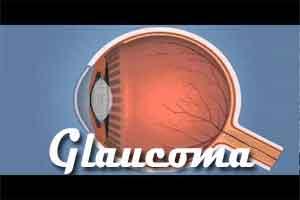- Home
- Editorial
- News
- Practice Guidelines
- Anesthesiology Guidelines
- Cancer Guidelines
- Cardiac Sciences Guidelines
- Critical Care Guidelines
- Dentistry Guidelines
- Dermatology Guidelines
- Diabetes and Endo Guidelines
- Diagnostics Guidelines
- ENT Guidelines
- Featured Practice Guidelines
- Gastroenterology Guidelines
- Geriatrics Guidelines
- Medicine Guidelines
- Nephrology Guidelines
- Neurosciences Guidelines
- Obs and Gynae Guidelines
- Ophthalmology Guidelines
- Orthopaedics Guidelines
- Paediatrics Guidelines
- Psychiatry Guidelines
- Pulmonology Guidelines
- Radiology Guidelines
- Surgery Guidelines
- Urology Guidelines
Indian doctors discover new genes that result in childhood glaucoma

Dr Subhabrata Chakrabarti at LVPEI in collaboration with Dr Hemant Khanna at the UMASS Medical School in Massachusetts, USA, conducted a study to have a molecular dissection of Primary congenital glaucoma to pave the way for understanding the molecular mechanisms of this disease necessary for its control and management. The study has been published in the international journal, Human Genetics.
Primary congenital glaucoma (PCG) happens to be more common blinding diseases in children. It is a genetic disease that occurs due to gene defects in two chromosomes. With an estimated prevalence of 1 in 3300 live births in the states of Andhra Pradesh and Telangana, it leads to permanent blindness, if left untreated.
The current incompleteness of knowledge about the molecular genetics of PCG is a bottleneck for mounting carrier detection and diagnostic protocols for the disease. The complete identification of the genes and mutations involved in PCG is of paramount importance in finding foolproof and inexpensive diagnostic tools.
Therefore the researchers conducted the study on a large cohort of 2000 subjects. This included >500 PCG patients and the rest were normal subjects without the disease and used for comparison.
They were instrumental in discovering new genes in PCG and understanding their underlying molecular basis in the involvement of this disease. Using high throughput genome screening (technically known as next-generation sequencing), the researchers showed that many new genes are responsible for PCG and the defects are transmitted together in children causing this disease. The research team discovered a new target in the cilia that may be responsible for PCG. Under normal conditions, these genes function by mingling with another gene inside the living cells to maintain the normal pressure in the eye. The collective defects across these genes disturb the normal interactions and may lead to PCG that occurs due to significantly raised eye pressure in the newborns.
Globally, such gene-gene interactions are not yet known in PCG from any other populations and hence have tremendous potential for undertaking an early diagnosis by screening parents who may be carriers of such defective genes. Further, genetic counselling based on this knowledge would help in the prevention of such needless blindness in children.
The parents carry one copy of the affected chromosome and are normal. But the child inherits one affected chromosome from the father and the other affected chromosome from the mother and gets the disease.

Disclaimer: This site is primarily intended for healthcare professionals. Any content/information on this website does not replace the advice of medical and/or health professionals and should not be construed as medical/diagnostic advice/endorsement or prescription. Use of this site is subject to our terms of use, privacy policy, advertisement policy. © 2020 Minerva Medical Treatment Pvt Ltd